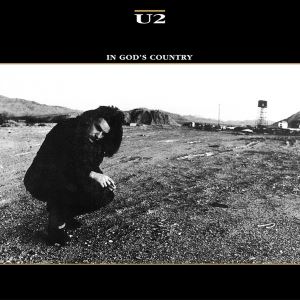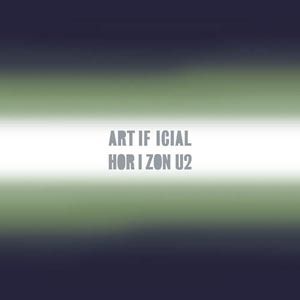Related Research Articles

David Howell Evans, better known as the Edge or simply Edge, is a British-Irish musician, singer, and songwriter. He is best known as the lead guitarist, keyboardist, and backing vocalist of the rock band U2. A member of the group since its inception, he has recorded 15 studio albums with them as well as one solo record. His understated style of guitar playing, a signature of U2's music, is distinguished by chiming timbres, use of rhythmic delay, drone notes, harmonics, and an extensive use of effects units.

How to Dismantle an Atomic Bomb is the eleventh studio album by Irish rock band U2. It was released on 22 November 2004 in the United Kingdom by Island Records and a day later in the United States by Interscope Records. Much like their previous album All That You Can't Leave Behind (2000), the record exhibits a more mainstream rock sound after the band experimented with alternative rock and dance music in the 1990s. It was produced by Steve Lillywhite, with additional production from Chris Thomas, Jacknife Lee, Nellee Hooper, Flood, Daniel Lanois, Brian Eno, and Carl Glanville.

"Where the Streets Have No Name" is a song by Irish rock band U2. It is the opening track from their 1987 album The Joshua Tree and was released as the album's third single in August 1987. The song's hook is a repeating guitar arpeggio using a delay effect, played during the song's introduction and again at the end. Lead vocalist Bono wrote the lyrics in response to the notion that it is possible to identify a person's religion and income based on the street on which they lived, particularly in Belfast. During the band's difficulties recording the song, producer Brian Eno considered erasing the song's tapes to have them start from scratch.

"In God's Country" is a song by the rock band U2. It is the seventh track from their fifth studio album The Joshua Tree and was released as the album's fourth single in November 1987 in North America only.

"Sometimes You Can't Make It on Your Own" is a song by Irish rock band U2. It is the third track on their eleventh studio album, How to Dismantle an Atomic Bomb (2004), and was released as the album's second single worldwide except in North America on 7 February 2005. Originally titled "Tough", the song is lyrically about the relationship between the band's lead vocalist Bono and his father Bob Hewson, who died of cancer in 2001.

"Vertigo" is a song by Irish rock band U2. It is the opening track on their eleventh studio album, How to Dismantle an Atomic Bomb (2004). It was released to radio as the album's lead single on 8 November 2004, and upon release, it received extensive airplay. The song was an international success, bolstered by its usage in a television advertisement featuring the band for Apple's iPod digital music player. The song lent its name to the band's 2005–2006 Vertigo Tour.

"City of Blinding Lights" is a song by Irish rock band U2. It is the fifth track on their eleventh studio album, How to Dismantle an Atomic Bomb (2004), and was released as the album's fourth single on 6 June 2005. It was produced by Flood, with additional production by Chris Thomas and Jacknife Lee. The song reached number one in Spain, and peaked in the top ten in Canada, Ireland, the United Kingdom, and several other countries. The music video was shot at the General Motors Place in Vancouver, British Columbia, Canada.

"Desire" is a song by Irish rock band U2 and the third track on their 1988 album, Rattle and Hum. It was released as the album's lead single on 19 September 1988, and became the band's first number-one single in the United Kingdom and Australia. It reached number three on the Billboard Hot 100 in the United States, and topped both the Modern Rock Tracks and Mainstream Rock Tracks charts, making it the first song to reach number one on both charts simultaneously. It reached number two on the Dutch Top 40. At the 31st Annual Grammy Awards, "Desire" won the 1988 Grammy Award for Best Rock Performance by a Duo or Group with Vocal.
"Zoo Station" is a song by Irish rock band U2. It is the opening track from their 1991 album Achtung Baby, a record on which the group reinvented themselves musically by incorporating influences from alternative rock, industrial, and electronic dance music. As the album's opening track, "Zoo Station" introduces the band's new sound, delivering industrial-influenced percussion and several layers of distorted guitars and vocals. Similarly, the lyrics suggest the group's new intents and anticipations. The introduction, featuring an "explosion" of percussion and a descending glissando for a guitar hook, was meant to make the listener think the album was mistakenly not U2's latest record or that their music player was broken.
"Yahweh" is a song by rock band U2 and the eleventh track on their 2004 album How to Dismantle an Atomic Bomb. It was mainly recorded in one take, and was performed live by the band during the Vertigo Tour. The song received mixed reviews from critics.
"Peace on Earth" is a song by rock band U2 and the eighth track on their 2000 album All That You Can't Leave Behind. Its lyrics were inspired by the Omagh bombing in Northern Ireland on 15 August 1998.
"One Step Closer" is a song by Irish rock band U2, and is the ninth track on their 2004 studio album, How to Dismantle an Atomic Bomb.
"In a Little While" is a song by Irish rock band U2 and the sixth track on their 10th studio album, All That You Can't Leave Behind (2000). Although it was not released as a single from the album, it became a hit on adult album alternative radio in the United States, reaching number one on the Billboard Triple-A chart for a single week in March 2002.
"When I Look at the World" is a song by Irish rock band U2, and the ninth track on their 2000 album All That You Can't Leave Behind.

Artificial Horizon is a compilation album of remixed tracks by rock band U2. It was released exclusively to subscribing members of U2.com, replacing Medium, Rare & Remastered. The remix CD is of a similar vein to the band's 1995 release Melon: Remixes for Propaganda, which was also released exclusively to fans. A triple-vinyl edition was released to the general public until 14 May 2010; this version included an MP3 for the Snow Patrol remix of the song "Unknown Caller".

"One Tree Hill" is a song by Irish rock band U2 and the ninth track on their 1987 album The Joshua Tree. In March 1988, it was released as the fourth single from the album in New Zealand and Australia, while "In God's Country" was released as the fourth single in North America. "One Tree Hill" charted at number one on the New Zealand Singles Chart and was the country's second-most-successful hit of 1988.
"Acrobat" is a song by rock band U2, and is the eleventh track on their 1991 album Achtung Baby. The song developed from a riff created by guitarist the Edge, and is played in a 12
8 time signature. Lyrically, the song expresses themes of hypocrisy, alienation, and moral confusion. Although "Acrobat" was rehearsed prior to the third leg of the Zoo TV Tour, it had not been performed live until its debut on the Experience + Innocence Tour on 2 May 2018.
"Love Is Blindness" is a song by rock band U2, and the twelfth and final track on their 1991 album Achtung Baby. The song was written on piano by lead singer Bono during the recording sessions for U2's 1988 album Rattle and Hum. Originally intending to give the song to singer Nina Simone, the band decided to keep it for Achtung Baby after playing it together. Thematically, the song describes a failing romance, mixing personal themes with imagery of metaphorical acts of terrorism. During the recording sessions for Achtung Baby, guitarist the Edge separated from his wife, Aislinn O'Sullivan. The separation had a major effect on the development of the song; Bono said that the ending guitar solo was a cathartic experience for the Edge, as he snapped several guitar strings during the recording.

"Stay " is a song by Irish rock band U2. It is the fifth track on their eighth album, Zooropa (1993), and it was released as the album's third single on 22 November 1993 by Island Records. The song reached number one in Ireland and reached the top 10 in Australia, Iceland, the United Kingdom, and several other countries. The accompanying music video, directed by Wim Wenders, was shot in Berlin, Germany. The earliest incarnation of the song developed during sessions for the group's 1991 album Achtung Baby. It was written for and inspired by Frank Sinatra and bore his surname as the original working title. An alternative recording was used in the 1993 film Faraway, So Close!, also by Wim Wenders.
"So Cruel" is a song by rock band U2. It is the sixth track on their 1991 album Achtung Baby, concluding side one of the album. The song was written at Elsinore in Dalkey. While audio engineer Flood changed reels to listen to a demo of another song, lead singer Bono began to improvise a song on guitar. The rest of the band quickly joined in, creating the first take of the song. It was developed as an acoustic track, with Flood adding overdubs and additional elements later. Bassist Adam Clayton and Flood noted that the technology in the studio was crucial in transforming the acoustic song into the final mix.
References
Footnotes
- ↑ McCormick (2006), p. 410
- 1 2 3 4 McCormick (2006), p. 409
- ↑ McCormick, U2 by U2, pp. 409–410
- ↑ McCormick (2006), p. 409-410
- ↑ Stokes (2009), p. 158
- 1 2 3 How to Dismantle an Atomic Bomb (Box format hardback book). U2. Interscope Records. 2004. B0003614-00.
{{cite AV media notes}}: CS1 maint: others in cite AV media (notes) (link)
Bibliography
- U2 (2006). McCormick, Neil (ed.). U2 by U2 . London: HarperCollins Publisher. ISBN 978-0-00-719669-2.
{{cite book}}: CS1 maint: numeric names: authors list (link) - Stokes, Niall (2009). The Stories Behind Every U2 Song. Carlton Books. ISBN 978-1-84732-287-6.